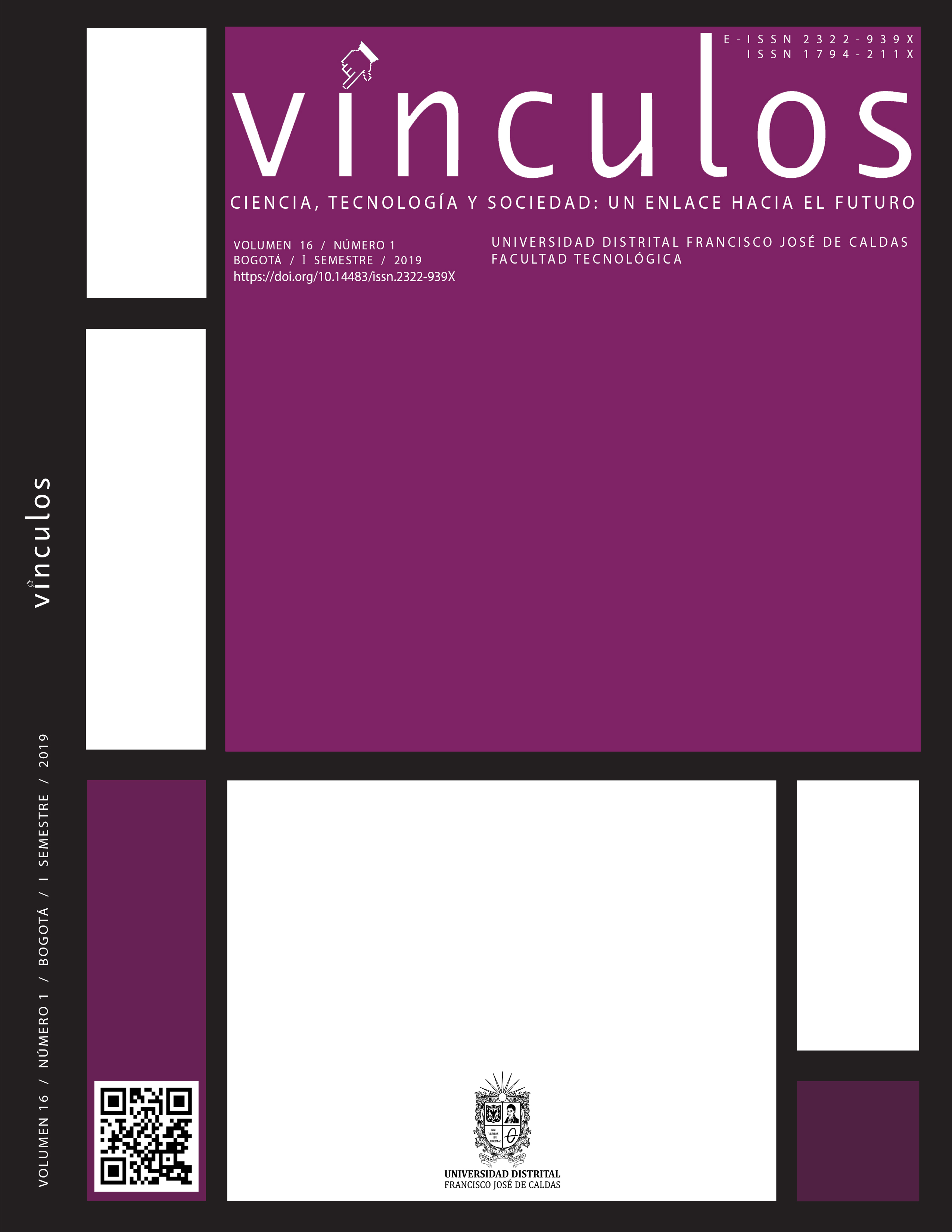DOI:
https://doi.org/10.14483/2322939X.15100Publicado:
2019-06-10Número:
Vol. 16 Núm. 1 (2019)Sección:
Entorno SocialIngeniería ontológica aplicada a la gestión de interesados de un proyecto
Ontological engineering applied to the management of stakeholders of a project
Palabras clave:
project management, stakeholders, ontologies (en).Palabras clave:
gestión de proyectos, interesados, ontologías (es).Descargas
Resumen (es)
La gestión de proyectos (vista desde los diferentes estándares y entidades que promueven las buenas prácticas en esta disciplina) refleja que un factor determinante en el éxito o fracaso en la ejecución de proyectos radica en el talento humano que interviene durante el ciclo de vida de este, ya que de acuerdo con su rol y momento de intervención, puede impactar positiva o negativamente el proyecto. Dicha problemática resalta la importancia de contar con un instrumento que permita la identificación, clasificación y seguimiento efectivo de los interesados del proyecto, de tal manera que la toma decisiones frente a este recurso permita hacer una gestión preventiva antes que correctiva, mitigando así el riesgo que pueda generar la desinformación o mala comunicación entre los mismos. Por lo anterior, el objetivo de este artículo, es modelar una ontología que sirva como instrumento de gestión de interesados con elementos semánticos y conceptuales dentro del dominio de la gestión de proyectos, construido a partir de las técnicas de la ingeniería ontológica, la cual permite resolver preguntas puntuales respecto a información concerniente a este recurso de manera ágil, precisa y efectiva, facilitando así su gestión en las fases que componen el ciclo de vida del proyecto. Esta investigación contribuirá con la integración de la ingeniería ontológica y la gestión de proyectos, posibilitando la construcción de una estructura de información de los interesados con componentes semánticos que la habilitan para ser insumo de un modelo de gestión de conocimiento más complejo.
Resumen (en)
The management of projects seen from the different standards and entities that promote good practices in this discipline, reflect that a determining factor in the success or failure in the execution of projects, lies in the human talent that intervenes during the life cycle of the person, because according to their role and time of intervention, that can positively or negatively impact the project. This problem highlights the importance of having an instrument that allows the identification, classification and effective monitoring of project stakeholders, in such a way that making decisions against this resource allows preventive management rather than corrective management, thus mitigating the risk that can generate misinformation or poor communication between them. Therefore, the objective of this article is to model an ontology that serves as an instrument of stakeholder management with semantic and conceptual elements within the domain of project management, built from the techniques of ontological engineering, which allows to resolve specific questions regarding information concerning this resource in an agile, precise and effective manner, facilitating its management in the phases that make up the life cycle of the project. This research will contribute to the integration of ontological engineering and project management, enabling the construction of a stakeholder information structure with semantic components that enable it to be the input of a more complex knowledge management model.
Referencias
Project Management Institute PMI, “Guía para los Fundamentos de Gestión de Proyectos (Guía del PMBOK®)”, Quinta edición. Pensilvania: PMI, 2014.
International Project Management Association (IPMA), “Global Standard for Individual Competence in Project, Programme and Portfolio Management”, Cuarta Version. Zurich: IPMA, 2015.
T. Gruber, “Toward Principles for the Design of Ontologies Used for Knowledge Sharing”, Available as Technical Report KSL 93-04, Knowledge Systems Laboratory, Stanford University, 2007. [En línea] Disponible en: http://citeseer.ist.psu.edu/gruber93toward.html
J. Hendler, “Agents and the Semantic Web”, IEEE Intelligent Systems, Vol. 16, no. 2, pp. 30–37, 2001.
R. Studer, V. R. Benjamins and D. Fensel., “Knowledge Engineering: Principles and methods”, Data and Knowledge Engineering, 25, 61-197. http://dx.doi.org/10.1016/S0169-023X(97)00056-6.
G. Barchini, M. Álvarez y S. Herrera., “Sistemas de información: nuevos escenarios Basados en ontologías”, Revista de Gestão da Tecnologia e Sistemas de Informação, Vol. 3, no. 1, pp. 2-18, 2006.
Guarino N., “Formal Ontology, Conceptual Analysis and Knowledge Representation”, International Journal of Human-Computer Studies, Vol. 43, no. 5/6, pp. 625–640, 1995.
T.R. Gruber, “A Translation Approach to Portable Ontology Specifications”, Knowledge Acquisition, 5(2), 199-221, 1993.
W.N. Borst, “Construction of Engineering Ontologies”, PhD Thesis, Enschede: University of Twente, 1997.
D. Lenat, R.V. Guha, “Building Large Knowledge-Based Systems: Representation and Inference in the CYC Project”, Addison-Wesley, 1990.
E. Freeman y A. Moutchnik, “Stakeholder management and CSR: questions and answers”, Umwelt Wirtschafts Forum, Springer Verlag, Vol. 21, and Nr. 1. 2013. [En línea] Disponible en: http://link.springer.com/article/10.1007/s00550-013-0266-3
M. Uschold, M. King, “Towards a Methodology for Building Ontologies”. IJCAI'95. 1995, Workshop on Basic Ontological Issues in Knowledge Sharing. [En línea]. Disponible en: http://citeseer.ist.psu.edu/uschold95toward.html
M. Grüninger, M. Fox, “Methodology for the Design and Evaluation of Ontologies”, IJCAI'95, Workshop on Basic Ontological Issues in Knowledge Sharing. [En línea]. Disponible en: http://citeseer.ist.psu.edu/grninger95methodology.html
S. Staab, R. Studer, H. Schnurr y Y. Sure, “Knowledge Process and Ontologies”, IEEE Intelligent Systems, 16(1):26-34, January-February, 2001.


2.png)



